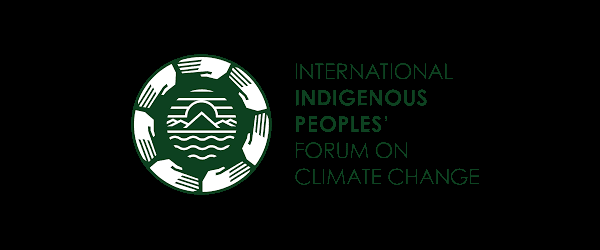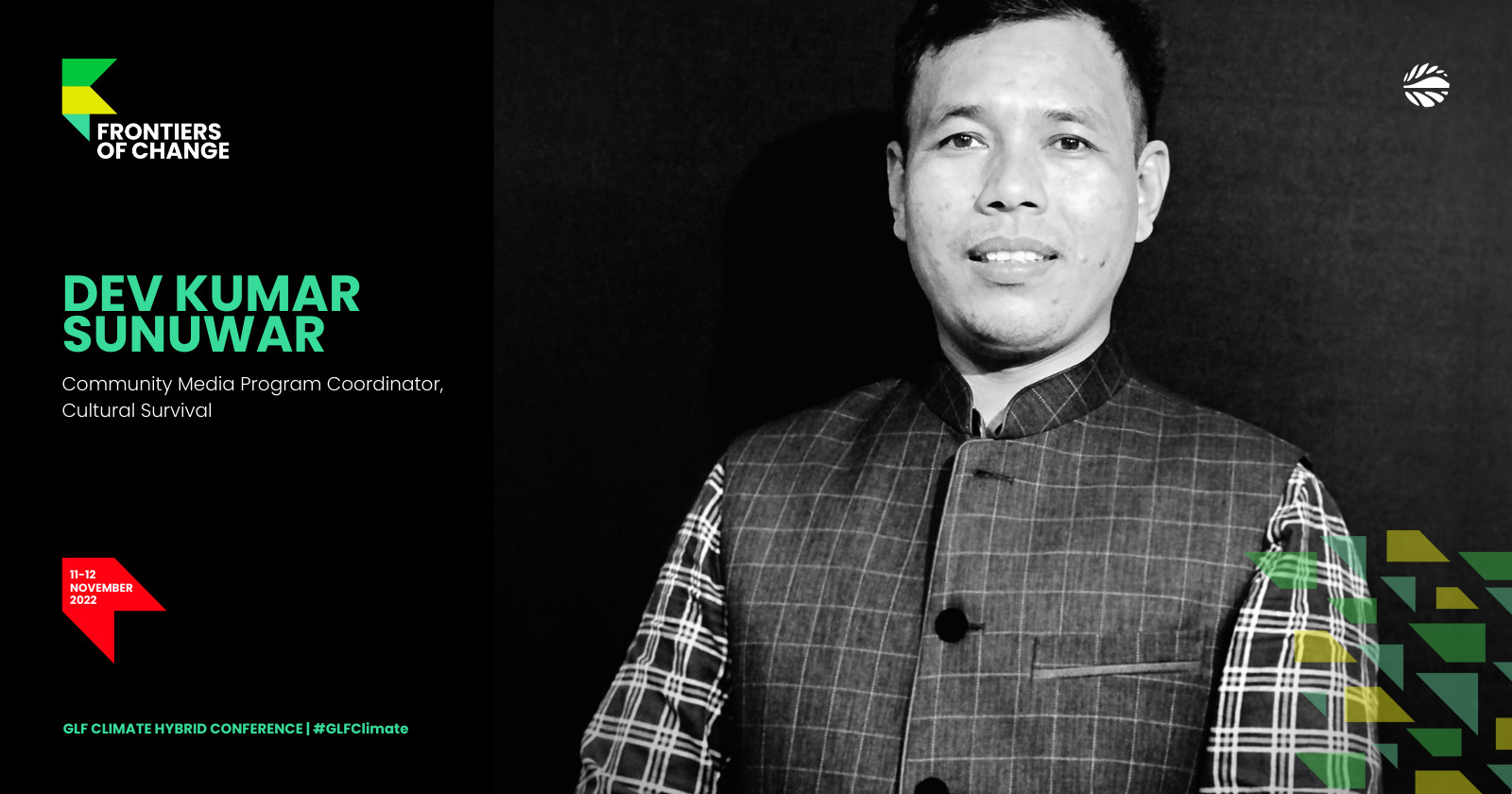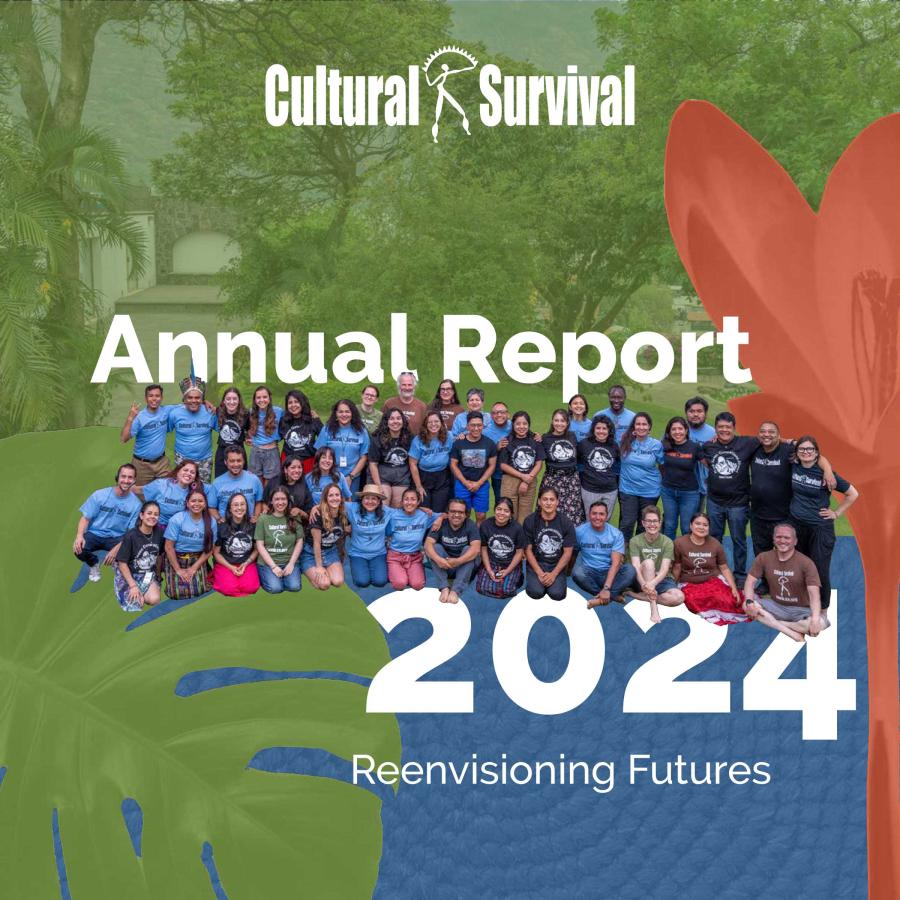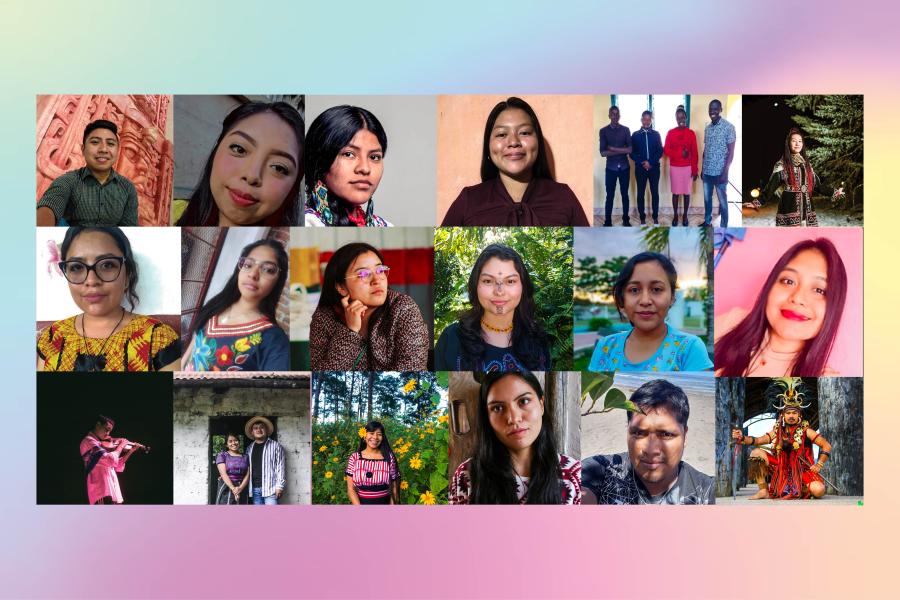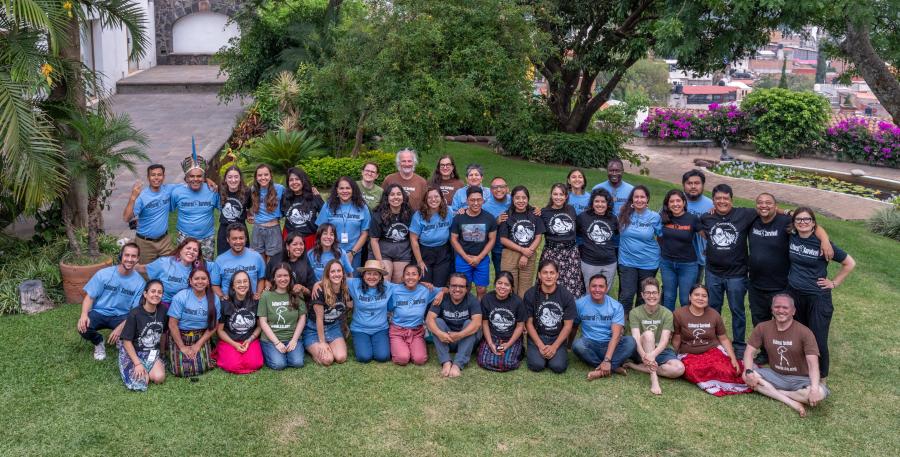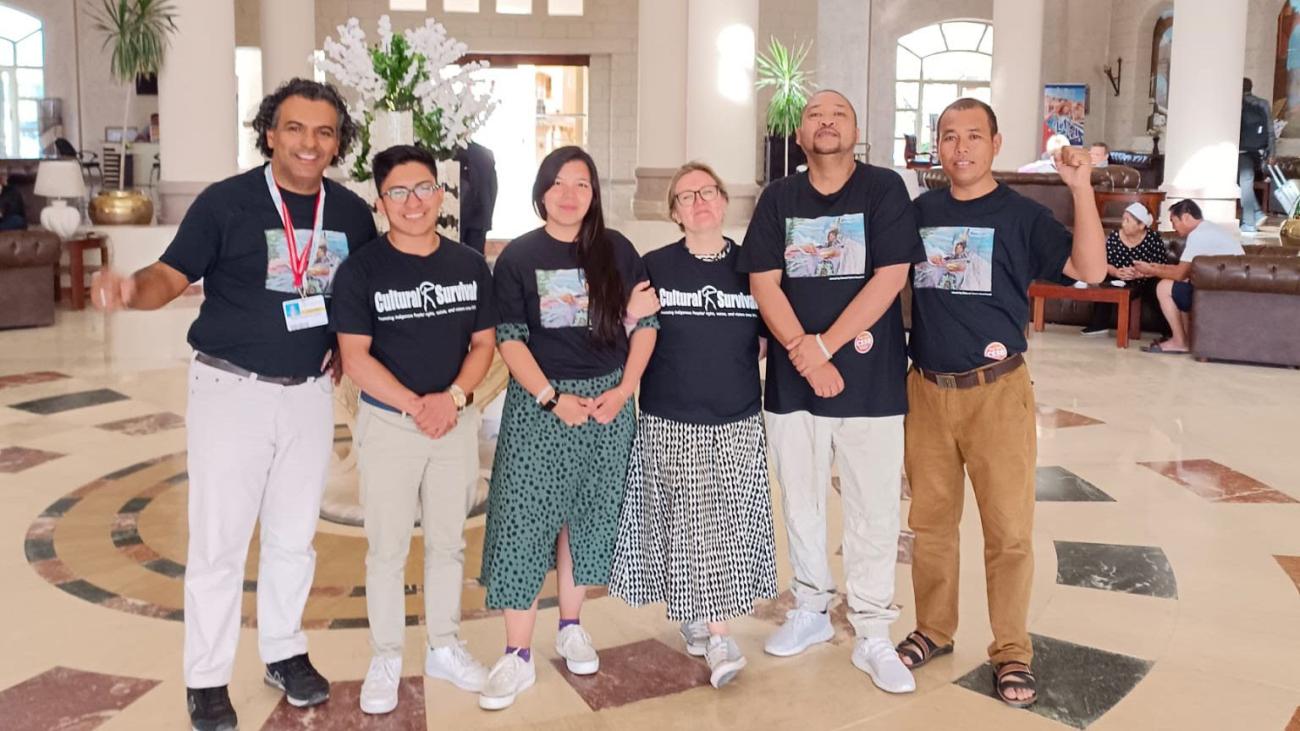
Reporting on week two of COP27!
The two-week 27th Conference of the Parties of the United Nations Framework Convention on Climate Change (UNFCCC COP27) held in Sharm El Sheikh, Egypt, came to a close on November 19, 2022. Cultural Survival’s Indigenous delegation of six was on the ground reporting directly on the most important issues concerning the climate negotiations and the implications for the rights and futures of Indigenous Peoples. During the conference, our team conducted dozens of interviews with Indigenous leaders and delegates who shared their wisdom and solutions for climate change, as well as followed the negotiations and decisions resulting from the conference.
Monumental Participation of Indigenous Delegates
Cultural Survival celebrates Indigenous participation in Sharm El Sheikh, with more than 300 delegates. The Indigenous contingency was one of the biggest at this COP. Community leaders came to Egypt from every corner of the world to share the stories of their communities and advocate for the rights of Indigenous Peoples during the climate negotiations. Cultural Survival acknowledges the immense effort undertaken by the International Indigenous Peoples’ Forum on Climate Change (IIPFCC) to facilitate the Indigenous Caucus, participate in negotiations with parties, as well as organize the Indigenous Peoples Pavilion, which hosted over 70 side events giving voice to the issues most important to Indigenous Peoples. This year’s Pavilion made history by having an Indigenous sponsor, NDN Collective. During COP27, we heard from many Indigenous delegations about the need for direct access to climate financing for Indigenous Peoples, as well as the need for the inclusion of specific language recognizing the rights of Indigenous Peoples in the cover text (known as the Sharm el-Sheikh Implementation Plan). Unfortunately, there are very weak references to Indigenous Peoples' rights in the cover text.
Key Decisions and Developments
Regarding Article 6 of the Paris Agreement, which enables countries to cooperate with each other to achieve emission reduction targets as established in their Nationally Determined Contributions (NDCs), such as through carbon markets, we see with concern that there is only a weak reference to Indigenous Peoples in the preamble, while Indigenous Peoples are totally absent in the operative text. Many of the world’s major carbon sinks are located on Indigenous Peoples’ territories, and these territories are targeted for “forest conservation schemes” that can result in land dispossession, fortress conservation, and ultimately forced removal of Indigenous Peoples from lands that they have stewarded for millennia. It is therefore of the utmost importance that references to Indigenous Peoples’ rights, including the UN Declaration on the Rights of Indigenous Peoples (UNDRIP), are included in the operative text to ensure that Indigenous rights are not violated by actors looking to profit at the expense of Indigenous Peoples’ knowledge and territories.
Many see the establishment at COP27 of a new Loss and Damage Fund as a major breakthrough. While we should celebrate the newly created Loss and Damage Fund to provide financing for vulnerable countries most affected by climate disasters, there are no references to Indigenous Peoples’ rights in the text of the decision that established the fund, which is especially concerning given that Indigenous Peoples are among the most affected by climate change. The decision also established a Transitional Committee on the operationalization of the new funding arrangements, which will provide recommendations for the management of this new fund for consideration and adoption at COP28 in 2023. Current climate financial mechanisms sideline the very people stewarding 25 percent of the Earth’s surface which contains 80 percent of the remaining biodiversity. If the current model for climate financing does not change, the necessary resources to combat climate change will not reach Indigenous Peoples who are bearing the brunt of its effects. In addition, actions on loss and damage and adaptation will not be effective. Indigenous Peoples should be at the center of climate finance decisions.
As the statement by the International Indigenous Peoples Forum on Climate Change presented at the closing of COP 27 declares, “The urgency and hopes we heard from World Leaders and Parties in Week One has quickly been overshadowed by false solutions which do not reduce emissions at source -including a reliance on carbon markets, ‘Net Zero” frameworks, and ‘nature-based solutions’- that delay real reductions, replicate new forms of climate colonialism, and fall short of 1.5 [°C, which is the goal of the Paris Agreement calling for countries to take concerted climate action to reduce greenhouse gas emissions in order to limit global warming]. Weak or absent language on human rights, the rights of Indigenous Peoples, and the rights of Persons with Disabilities in many agenda items, means that this COP has compromised on the uncompromisable. This is evident especially in Article 6 with a rushed conclusion removing many safeguards and references to rights, thus failing to uphold Parties’ existing commitments under other agreements such as UNDRIP, and leaving our communities at risk of carbon colonialism that further encroaches on our territories and ecosystems.”
The Global Goal on Adaptation (GGA), was established in the Paris Agreement (Article 7), with the goal of building up adaptive capacity, strengthening resilience, and reducing vulnerability to climate change. As parties try to define the metrics for the Global Goal on Adaptation, it is important to ensure that Indigenous rights, knowledge, and full participation are secured. Decisions on climate mitigation and adaptation should center a rights-based approach to ensure that Indigenous Peoples are not unduly harmed by adaptation and mitigation practices. There was no decision on this issue at COP27; therefore, negotiations will continue in 2023. The programme for discussions on this topic references Indigenous Knowledge, wisdom, and values, a welcome development, and we hope that more references to the rights of Indigenous Peoples are also included when talks resume.
Cultural Survival’s Participation
Cultural Survival’s delegation hosted and co-hosted five side events and was invited to speak at numerous side events to discuss issues related to securing the rights of Indigenous Peoples in the Just Transition, climate financing, Indigenous women, and criminalization of Indigenous rights defenders, among others. We consider these side events fruitful, as they were key to sparking conversations about the need to center Indigenous rights in all matters related to climate change negotiations and actions. Cultural Survival is grateful to all the Indigenous experts who shared their stories and expertise with us at our side events. Through our conversations, our delegation reminded everyone that the so-called energy transition is replicating the same harms of the fossil fuel economy by violating Indigenous rights and inflicting environmental destruction. We also reminded the world that direct access to climate financing for Indigenous Peoples is in itself a climate change solution, and that no one should forget about the plight of Indigenous rights defenders risking their lives defending their lands and territories from corporations and governments who have historically shown little to no respect for Indigenous rights.
We must also speak about the difficulties faced by Indigenous Peoples at this COP. This includes the sky-high prices for food and accommodation, which limited participation from organizations which are already severely under-resourced. We urge stakeholders to ensure that Indigenous Peoples and all people are able to fully participate in these negotiations because we all are affected.
None of the work done at COP27 would have been possible without the support of our partners. We are grateful for your support and to have the resources to participate in, report on, and connect the global talks to our communities who have much at stake in these negotiations.
Indigenous Peoples Challenge Lack of Ambition and Rights at COP27 Close
Speaking on behalf of Indigenous Peoples’ Organisations, Indigenous youth leader, Skw’akw’as Sunshine Dunstan-Moore, challenged state parties on their unambitious and apathetic approach to climate action as the two-week COP27 conference drew to a close this morning in Sharm El-Sheikh. Read more.
Indigenous Voices from COP 27
A COP27 Summary with Kera Sherwood - O'Regan (Kāi Tahu)

Hindou Omarou Ibrahim (Mbororo) on the COP27 Highlights

Salote Nasalo - Indigenous And Local Communities Must Be Recognized As Right Holders!

Lorraine Netro (Vuntut Gwitchin) - Our Elders Taught Us How To Protect Mother Earth!

Yolene Patricia Koteureu (Kanak) - Indigenous Peoples Have Solutions!
 Shaq Koyok (Temuan) - Arts Against Climate Change
Shaq Koyok (Temuan) - Arts Against Climate Change

Tarcila Riviera Zea (Quechua) - On Indigenous Women Fighting Climate Change

Mrinalini Rai - Policies And Climate Processes Should Ensure Rights Of Indigenous Women

Dario Mejía Montalvo (Zenú) - Los estados no han podido resolver asuntos para mitigar el cambio climático

Harol Rincon (Maguta) - Retos de los Pueblos Indígenas para mitigar los efectos del cambio climático

Vairoa Ika (Rapanui) - El Cambio climático y la cosmovisión de los Pueblos Indígenas

Maria Eugenia Choque Quispe (Aymara) - ¿Cómo la crisis climática afecta la vida de los pueblos Indígenas?
Access Recordings of our Events at COP 27
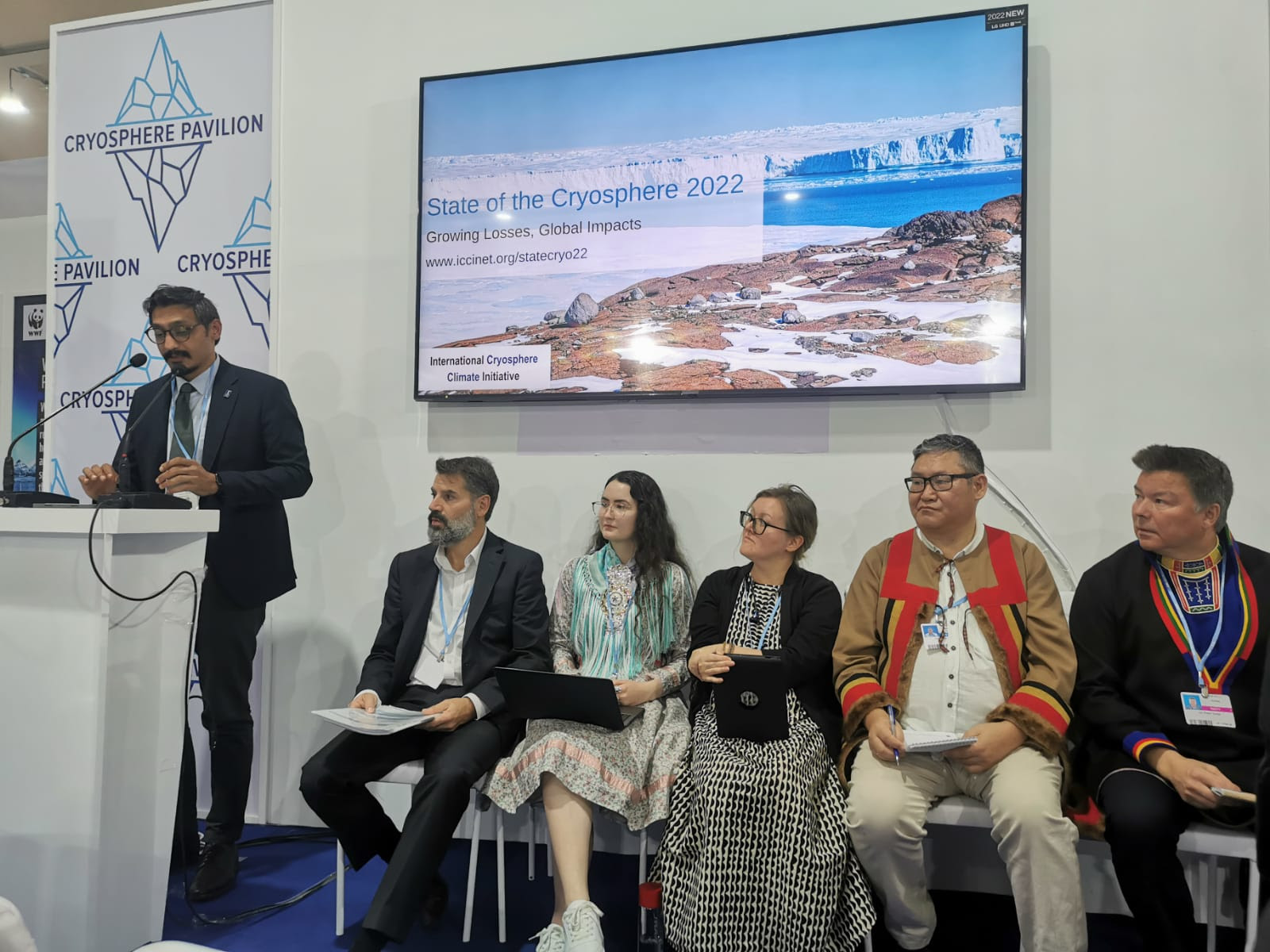
November 10
From the COP27 Cryosphere Pavilion! Indigenous Peoples’ Food Systems in the Arctic as Game Changers for Climate Action
Cultural Survival Delegate Polina Shulbaeva (Selkup) spoke about the main challenges Indigenous Peoples in the Russian Arctic are facing.
Watch here.

November 10, 2022
Who Pays: Climate Financing and the Real Cost of a Just Energy Transition
Cultural Survival's Executive Director, Galina Angarova spoke about the impacts of the so-called Just Transition on Indigenous Peoples and called for respect of Indigenous Peoples' right to self determination and implementation of the right to Free, Prior and Informed Consent in the Transition to a Green Economy. Lesley Munoz (Colla), Cultural Survival's delegate to COP27, talked about the impacts of lithium mining in her territory on the land, water and biodiversity.
Organizers: Ford Foundation and Cultural Survival
Watch here.

November 11, 2022
GLF Frontiers of Change Stewardship Economy Plenary
Galina Angarova (Buryat), our Executive Director spoke about the need to center Indigenous Peoples' and human rights as well as true, regenerative practices as we transition to a green economy. Healthy and sustainable economies should mirror healthy ecological systems.
Watch here.

November 12, 2022
Securing Indigenous Rights in the Transition to a Green Economy
Members of the SIRGE Coalition talked about the current trends in the mining of Transition Minerals, explained how FPIC is essential to protect Indigenous Peoples' rights, shared case studies of Indigenous Peoples' engagement with the mining sector, brought attention to specific cases from communities affected by mining of Transition Minerals, introduced the SIRGE coalition and made a call to action from all stakeholders involved in the Transition to a Green Economy.
Organizers: Global Landscape Forum (GLF) and Cultural Survival
Watch here.
November 12, 2022
GLF Frontiers of Change Closing Plenary
Dev Kumar Sunuwar (Koĩts-Sunuwar), Cultural Survival Community Media Program Coordinator, shared about how we can ensure development pathways create value for Indigenous and local people based on low-carbon economies.
Watch here.
November 14, 2022
Strengthening Indigenous Peoples' Resilience through Direct Access to Climate Finance
Panelists shared about the current trends of Climate Finance for Indigenous Peoples and discussed what needs to change to ensure Indigenous Peoples from all seven socio-cultural regions have equal access to climate financing needed for climate adaptation and mitigation.
Organizers: Cultural Survival & Tebtebba
Watch here. (start at 2:10:00)

Tuesday, November 15, 2022
Weaving Perspectives Across Regions: The Need for Equitable Funding for Indigenous Women’s Leadership, Movement Building & Climate Solutions
Indigenous Women are protecting natural resources, resisting extractive industries, protecting land and territory rights, upholding ancestral knowledge, and organizing by centering the rights, needs, voices of Indigenous Women, Girls, LGBTQ2+ Peoples. Yet, resourcing for Indigenous Women’s movement building is minimal, access to spaces that center Indigenous Women’s participation is limited, and climate financing is not reaching grassroots groups let alone Indigenous Women. This session highlights cross-regional perspectives from leaders who are calling for equitable funding to Indigenous women-led climate solutions and intersectional movement building.
Organizers: Association des Femmes Peuls Autochtones du Chad (AFPAT), Cultural Survival, International Funders for Indigenous Peoples (IFIP), Foro Internacional de Mujeres Indígenas (FIMI)
Watch here. (start at 1:49:09)

November 17, 2022
Voices of Indigenous Rights Defenders: Cases of Criminalization from Across the Globe
Frontline Defenders reported that at least 331 human rights defenders were killed in 2020, 69 percent of whom were specifically defending Indigenous land or environmental rights and 26 percent of whom focused on Indigenous Peoples’ rights in particular. In the three years prior to October 2020, over 25 percent of rights defenders who were killed were Indigenous, despite representing just 6 percent of the global population. At this session, we hear from frontline defenders who discuss the crisis of criminalization of Indigenous rights defenders and what needs to be done to bring this crisis to a halt.
Organizer: Cultural Survival
Watch here.
